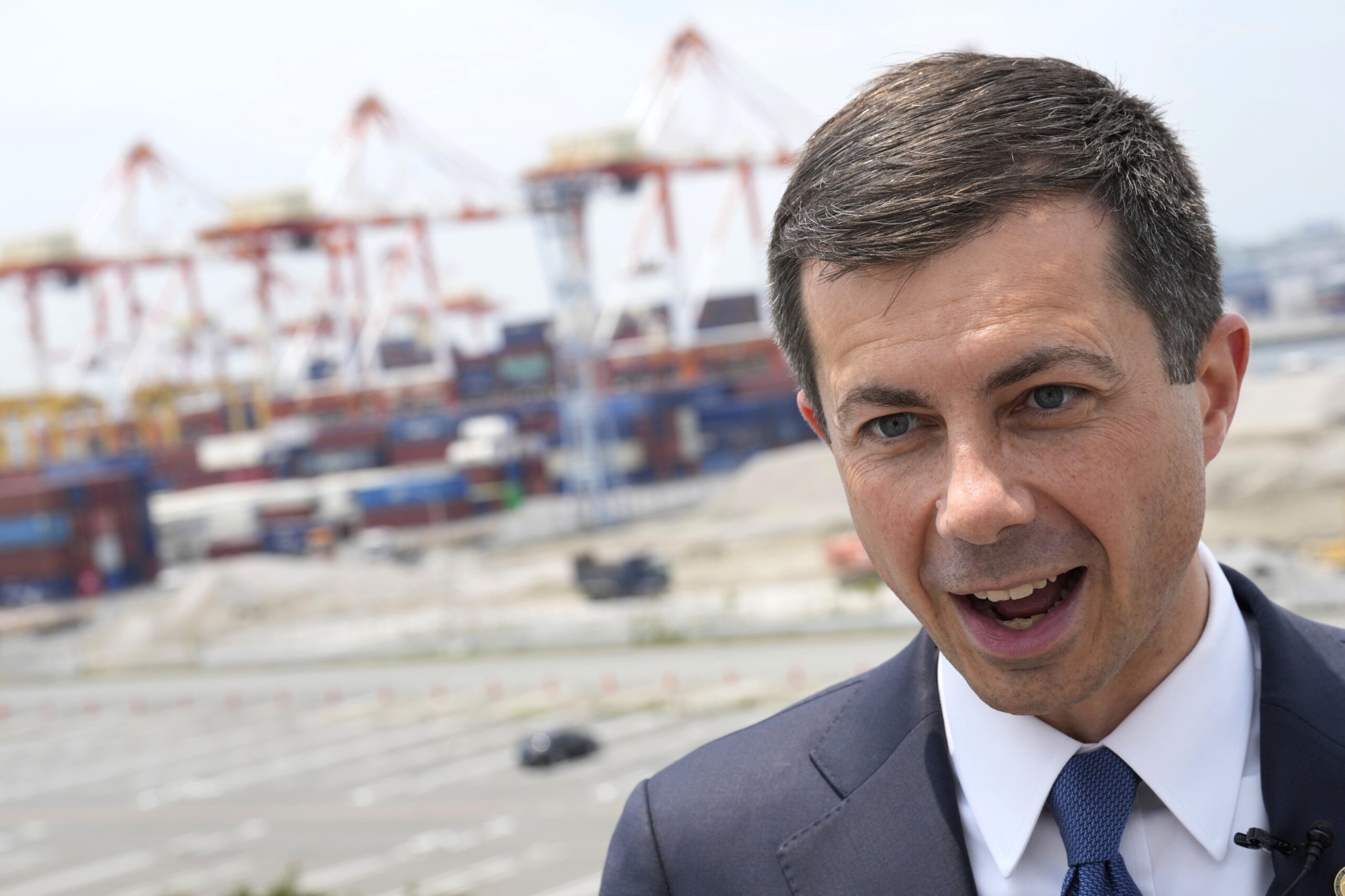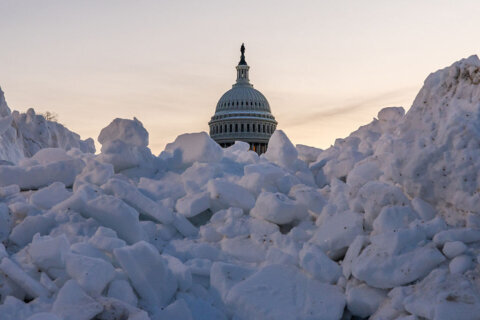It’s now been two years since President Joe Biden signed a massive federal infrastructure bill into law.
But have you noticed changes to your commute?
U.S. Transportation Secretary Pete Buttigieg joined WTOP’s John Aaron to outline what he said are some notable improvements in this area.
Read the full conversation below:
WTOP anchor John Aaron: We’re talking about the infrastructure bill at two years. It’s a tough issue to relate to people; eyes tend to glaze over at infrastructure, unfortunately. So, for people in the D.C. area, what has this bill meant for them? How can they notice that this bill has helped their lives in some way?
U.S. Transportation Secretary Pete Buttigieg: Well, I think this is leading to literally concrete improvements for people everywhere in the country, and certainly everywhere in the DMV. I mean, if you look at just what’s coming to Virginia, Maryland and D.C., those billions and billions of dollars are turning into all kinds of improvements.
Think about the work that’s going on, on Long Bridge, connecting the Mount Vernon trail to downtown D.C. for pedestrians and, importantly, for supply chains and for our future — reconnecting and shoring up the connection that keeps that rail traffic moving that we count on in so many ways.
Airport terminal program dollars — going to allow Dulles to construct a new 14-gate concourse to replace an existing concourse, which is aging.
If you look at Prince George’s County on the Maryland side, improving trail networks there. The Frederick Douglass Tunnel, a little closer to Baltimore, represents one of the biggest public works projects going on in the country. It’s replacing a rail tunnel that is 150 years old, and that hundreds of thousands of people count on.
And then right here in the District, just to take one example, rehabilitating the northbound I-395 bridge. So these are very practical improvements that are making a difference. Now, they don’t come overnight. Many of them will be a few construction seasons before all the work is done, if you think about something like rebuilding an airport concourse.

But, the other side of it is that even before we get the benefits of the finished product, we get the benefits of the jobs. And we are seeing many, many construction jobs, good paying jobs. Again, the Frederick Douglass Tunnel alone is estimated to be creating about 30,000 jobs, which means really good opportunity for people in the region.
Aaron: What about the Amtrak [Northeast] corridor?
Buttigieg: You know, we just announced major funding. The president was in Wilmington, talking about the projects that are happening all up and down the Northeast Corridor. And this is really vital. You know, this is the most we’ve done since Amtrak was created to improve passenger rail. It’s going to mean more reliability, fewer delays, often replacing 100-year-old tunnels and bridges. And at the end of the day, it’s going to mean a faster ride.
Aaron: We’re on the cusp of what is expected to be a busy holiday travel season. Of course, we had those airline meltdowns last year. What’s different this year that might keep that from happening again?
Buttigieg: Well, a lot has changed compared to a year ago. We put a lot of pressure on the airlines and, to their credit, they have responded. We’ve also made operational improvements and worked with them, where appropriate, to make sure things could go more smoothly. It’s why we’ve seen the rate of cancellations actually now get back to below what it was before COVID. Now, that doesn’t mean we’re out of the woods — the airlines have more improvements to make and we’re going to keep pushing.
But, another thing that’s changed since last year is passengers have a lot more rights. We have established enforceable protections. You can go to FlightRights.gov and get more information. I would strongly encourage you — especially because we’re looking at potentially record travel — go ahead and check out FlightRights.gov before you book to see what you can expect airline by airline in terms of how they take care of customers. And if you do run into a problem, let us know, because we will follow up and we will enforce.
Aaron: All right, is it safe to say you’re optimistic?
Buttigieg: I think we’re definitely on a better footing compared to a year ago. But we’re on the lookout for any issue and we will follow up to protect passengers anytime they encounter a problem.
Aaron: Finally, before we let you go, you’ve been vocal in the need to avert a government shutdown, which we have now done for now. What is your reaction to this stopgap bill?
Buttigieg: Well, obviously, it’s good news to not be staring down yet another shutdown going into this weekend. But, we also can’t keep lurching from one GOP shutdown threat to the next. It disrupts planning. I can tell you it consumes untold hours, which really amount to dollars in our department. And when you think about something like training air traffic controllers, it’s just no way to do business to have politics threaten the stability of that program every few weeks. So, I’m hopeful we can get to a permanent answer that cooler heads will prevail. Really we’re just asking House Republicans to honor a deal they already made with the president earlier this year, so that we can think about other things — focus on all the bridges and tunnels we’re fixing and building and hiring more air traffic controllers — instead of worrying about a shutdown every few weeks.







